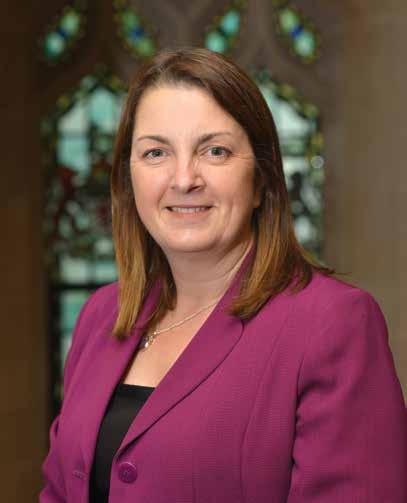
3 minute read
CILEx
CILEx
Lynne Squires, Head of Business Development at the Chartered Institute of Legal Executives (CILEx) reflects on its growing contribution.
With a majority female membership, CILEx has a key role to play in working towards equality.
CILEx has long championed the importance of diversity in the legal profession. Our legal system must reflect the society it serves and is enriched by encompassing the perspectives of those from different backgrounds and experiences.
Given that 72% of our members are women, we believe that CILEx has a key role to play in working towards equality. We have one of the most diverse memberships in the legal sector, enabled by the CILEx route into law that gives those from all backgrounds – and particularly non-graduates – the opportunity to build a career in the profession.
Since the 1960s, CILEx has been attracting women interested in a progressing a career in the law by providing flexible options for study and qualifications that can be fitted around work and caring responsibilities. Over the years, many women who began in secretarial or legal support roles within law firms as school leavers, and then found themselves increasingly carrying out legal work anyway, have been able to develop into fully qualified and significantly experienced lawyers. But CILEx lawyers come from so many different circumstances – another striking category is those pursuing a second career, while apprenticeships are very much on the rise – and the contrast with the far more homogeneous backgrounds of solicitors and barristers is stark.
By offering a different route into the law, we have also been able to welcome and support lawyers from diverse social backgrounds and ethnic communities into the profession.
In a society where women still take on the lion’s share of childcare, the ability to study remotely, the flexibility to pause and restart qualifications and to take them at a pace that accommodates the many changes to life circumstances individuals face has proved invaluable to women looking to advance in a legal career.
The liberalisation of recent times has also greatly benefitted CILEx lawyers: they can become partners in law firms, they can obtain rights of audience, they can set up their own regulated law firms. Though we continue to battle outdated stereotypes, the reality is that CILEx lawyers can stand shoulder to shoulder with their solicitor and barrister colleagues.
So, alongside the Bar Council and the Law Society, our commitment to equality saw us take part in the launch of the Women in Law pledge last year, an initiative aimed at signing up law firms, local law societies, barristers’ chambers and other legal service providers to a commitment to improve gender equality. We are also supporters of the Next 100 Years project, an initiative dedicated to achieving equality for women in law.
As part of our lobbying work we seek to push the interests of our female members and to influence legislation aimed at preventing sex discrimination and harassment, responding to consultations in areas such as maternity discrimination. Our members understand these issues – they have, sadly, lived them and driven much of the change.
It is clear that many women working in the legal profession and beyond still face these barriers to progress and that the coronavirus pandemic is threatening to turn back the clock, with women taking on more childcare responsibilities and facing considerable financial pressures in the wake of the crisis.
CILEx will be consulting its membership on an annual basis to hear differing perspectives from all of our members who face discrimination and prejudice in the workplace. This work will allow us to understand how issues may be disproportionately affecting women and other groups, to measure the impact of these barriers to inclusion and examine how CILEx can take action to address them.
We also continue to push for judicial diversity, encouraging our members to consider a career in the judiciary and offering help and support with making applications. Last year saw the appointment CILEx’s first female judge, Elizabeth Johnson, a Chartered Legal Executive who is now a judge of the First-tier Tribunal alongside her work as a personal injury specialist.
We want to ensure that change for women in law moves at a far greater pace and that CILEx is not standing still. We continue to look at how our organisation can remove the barriers to progressing in a legal career, at how our qualifications and learning model can be improved and updated, and how the legal profession as a whole can work together to improve progress towards equality. ■

Lynne Squires










